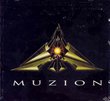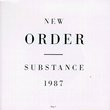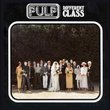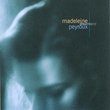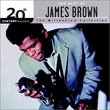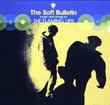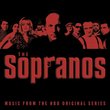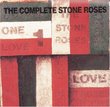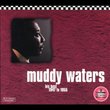| All Artists: Television Title: Television Members Wishing: 3 Total Copies: 0 Label: EMI Europe Generic Release Date: 2/8/1999 Album Type: Import Genres: Alternative Rock, Pop, Rock Style: Hardcore & Punk Number of Discs: 1 SwapaCD Credits: 1 UPCs: 077779839629, 0077779839650, 077779839643, 632427354529 |
Search - Television :: Television
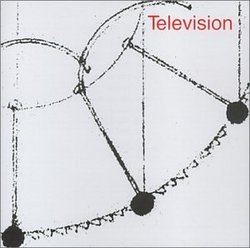 | Television Television Genres: Alternative Rock, Pop, Rock
Their 1992 reunion featuring members Tom Verlaine, Richard Lloyd, Fred Smith, and Billy Ficca. |
Larger Image |
CD DetailsSynopsis
Album Description Their 1992 reunion featuring members Tom Verlaine, Richard Lloyd, Fred Smith, and Billy Ficca. Similar CDsSimilarly Requested CDs
|
CD Reviews14 years later... P. Nicholas Keppler | Pittsburgh, Pennsylvania United States | 10/29/2001 (3 out of 5 stars) "After an era when every band who was cool or was supposed to be cool taking after the sly attitude and pop sensibilities of the artpop side of the New York punk scene, represented by them, Patti Smith, Talking Heads and Blondie, Television returned on this 1992 reunion album. This older, more subdued version of Television offers some nice additions to the band's cannon. "1880 or So" exceeds "Days" as their most beautiful song. The thumping, suave of "Beauty Trip," the reflective tone of "No Glamour for Willi" and the bop of "In World" are also well worth noting. But still this self-entitled offering disappoints, namely in the area of guitar work. Richard Lloyd and Tom Verlaine were once the best collaboration of guitar players in rock. The clean, crisp, fluid electric guitar duel from the title track of 1977's Marquee Moon is one of the finest moments of the instrument's history in this form of music. This album offers decent riffs but generally the guitar parts flounder (e.i. the jumbled sound of "Mars" or the wandering musings of "Rhyme"). Even the more catchy riffs do not really take off as they once did. Also, Verlaine is not the vocalist he used to be. On this album, his voice sinks behind most of the instruments, but luckily his ability to write crafty, ironic lyrics is still in tow. Many of the elements that made Television one of the best bands of the punk movement are still here but ten years of rust has somewhat taken its toll." Television J P Ryan | Waltham, Massachusetts United States | 07/28/2007 (5 out of 5 stars) "By 1992 the legendary status of Television, the seminal band that was culturally, if not musically, linked to New York's C.B.G.B.'s, had surely grown, yet artistic influence be damned, a reunited Television still couldn't crack the Billboard Top 200 with their first album in 14 years. "Television", the group's third studio album, barely announced itself with abstract cover art and eponymous title, nor does the music jump out and take over your head and body the way "Marquee Moon" (1977) does. And, compared to their underrated second album, "Adventure" (1978), this is a more fleet and concise work, eschewing the langourous pace and watery keyboard/guitar textures. But unlike more successful peers such as Ramones, or Blondie, Tom Verlaine, Richard Lloyd, Fred Smith, and Billy Ficca successfully made a Television record for the 1990s that honors, and adds to, their legacy. At first "Television" feels rather dry, and passes by pleasently enough; yet with familiarity it eventually reveals itself to be both timeless and unassuming, understated and sometimes gorgeous. More than a decade after its release I'm still hearing some new musical detail or emotional nuance whenever I play it. With the band members in their forties, "Television" shows the New York quartet's 'maturity' which is not a back-handed compliment, for the musical intelligence, clarity of purpose, and self-awareness is evident throughout its ten tracks. Sometimes they seem to be evolving material out of loose jams ("Rhyme"), but the overall impression is of an organic and rigorous musical conception. And the songs, all of them memorable, give us Tom Verlaine in varied narrative personae, frequently exploring eroticism in a witty, appealing manner. The music is mostly made by guitars, bass, and drums (keyboards are less evident than on the Elektra albums), both stark and lush. Tom Verlaine's songs, in which darkness, compassion, and playfulness all co-exist in a world that seems hermetic at first, but prove to be Verlaine at his more accessable and communicative. The album certainly carries considerable emotional weight, yet many of the lyrics refer to literary and pop culture images from Verlaine's youth ("Mars", "The Rocket", "Rhyme"). As stripped down as Nirvana's contemporary "Nevermind" or "In Utero", the sound is typically dryer, less crunchy and inviting, but like Lloyd's superb solo debut "Alchemy" or Verlaine's classic "Dreamtime" the record deserves close attentionj. In my case I decided it was a good, slightly disappointing, record after three or four plays, and left it alone for nearly a decade. When I came back, after digging into Rhino's expanded editions of the two Elektra albums and the wonderful, incendiery "At The Old Waldorf" live album, I was amazed to find just how fresh the production was, and how many melodies and riffs had stuck in my brain without my even knowing it. There was a rush of pleasure, hearing this rich, nuanced album that sounds better than ever, and deserves the status of a minor classic. The riffs and melody lines are quintessential, if restrained, but do not feel sketchy or underdeveloped; the interlocking friction and lyricism of the guitars, and those exquisite solos - Lloyd's almost mathematical yet stunning and physical in their impact, Verlaine's more improvised yet heady, angular - and interplay are like stars piercing through a clear night - they shimmer and glow. Verlaine and Lloyd, despite their publicized differences, are an amazing team, virtually telepathic, as inventive as ever yet more playful and allusive. They bring out the best in each other, and I only wish they made more records together. Fred Smith's bass is as always supple and, on "Rhyme", entrancing. And Billy Ficca is a master percussionist, adding something fresh to every track. Unless you like "Marquee Moon" but have been put off by the rest of the band's (or Verlaine's) work, this recording is highly recommended. Too bad it, too, hasn't been expanded - with three tracks issued on a French ep in '92, or live material from the hard to find "Live At The Academy" set sold at gigs." Very good, but short of Marquee Moon Andrejs J. Cers | Minneapolis, MN | 01/29/2004 (4 out of 5 stars) "It was certainly a good thing to see one of the most innovative guitar bands of their era get together again after a fifteen-plus year hiatus. But since Television was responsible for one of the greatest electric guitar albums of all time, Marquee Moon, expectations were impossibly high. Perhaps it takes a musician to truly appreciate the startling brilliance of early Television. The inventiveness of Tom Verlaine's and Richard Lloyd's guitar interplay layered over the quirky pop sensibility of Verlaine's songwriting wrote an essential chapter in electric guitar rock history. There are precious few guitar duos that have created such a profound joint legacy. But this is not all that was remarkable about Television. Television was four creative musicians... and each played an essential part in creating the whole.
On Marquee Moon, every member of Television stretched the normative envelope of their instrument including Billy Ficca and Fred Smith. Ficca's unique approach to the drumset might again be only appreciated by a musician. The hi-hat, a pair of cymbals typically used only as a rhythmic accent, was elevated to a central role. Ficca's innovative use of the nuances of the hi-hat bring to my mind Roy Haynes subtle use of this instrument in jazz settings of the late sixties. This is the point where this 1992 Television album starts to reveal its failings. Ficca, who had earlier proven himself a truly inventive drummer, plays on this album as if he was inspired by a metronome. I suspect Tom Verlaine wrote all of these songs before the band ever got together with the help of an electronic drum machine. I suspect Ficca was then forced to following the rote repetitiveness of Verlaine's pre-programmed machine, keeping him from the creative role he had earlier played. The effect is quite disappointing. Another major weak point is the poor quality of Tom Verlaine's vocals. On the early albums, Verlaine's youthful intensity made up for his lack of pipes. On this album his voice seems to have weakened to the point of croaking unintelligibly, to a truly embarassing level on 'Mars'. But the opposite is true concering guitarist Richard Lloyd. Unlike Verlaine, who seems past his prime, Lloyd has grown impressively into a true guitar virtuoso, enhancing his previously keen inventiveness with jaw-dropping chops. And this is perhaps where this album shines best. Lloyd's contributions, especially his solo on the fourth tune, "Call Mr. Lee", inject real fire into Verlaine's tunes. This helps make "Call Mr. Lee" the equal of any of the great early tunes from Marquee Moon. This song alone justifies the price of the album. Where Lloyd is less prominent, the result seems more like some sorta-OK Tom Verlaine solo-career songs. I wonder how great this reunion album could have been if Verlaine had in the interim period taken serious vocal training. Of course it would also have helped if he had thrown his drum machine into the trash, and spent the time writing these songs in the same room with the rest of Television. Maybe more of the old magic would have happened." |

 Track Listings (10) - Disc #1
Track Listings (10) - Disc #1


